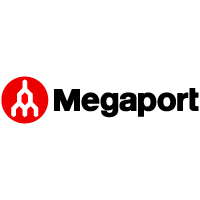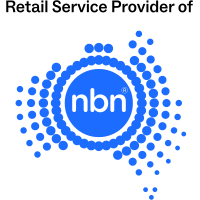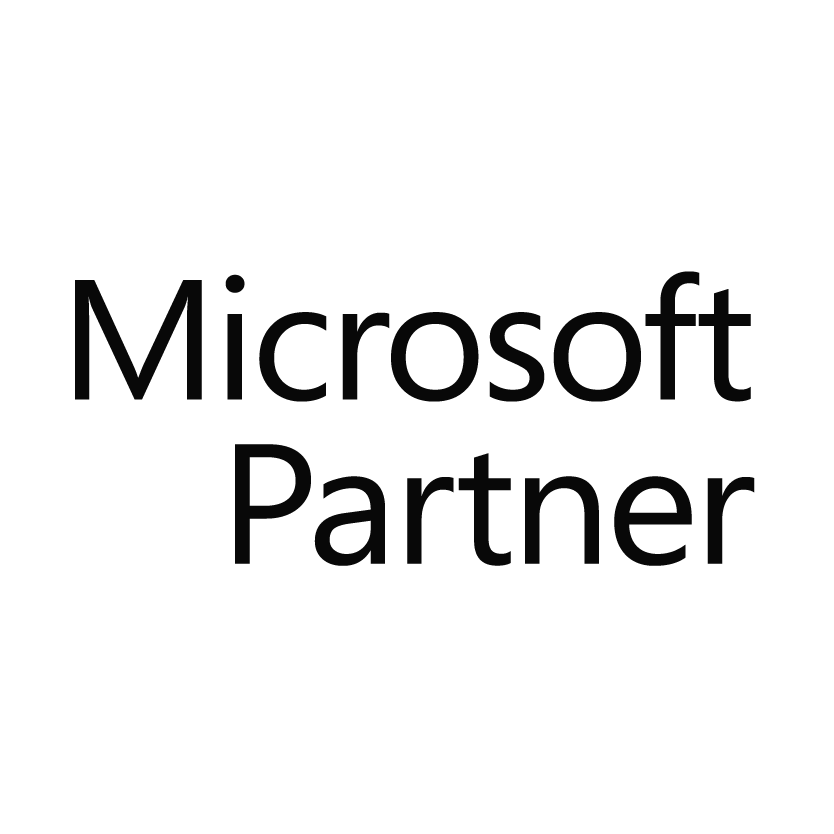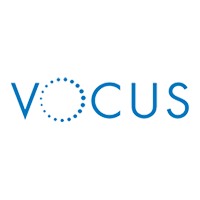Strategic IT Planning for Maximum Financial Impact

22 July
2024
TL;DR Summary
Adopting Managed IT Services is crucial for businesses aiming to stay competitive, secure, and scalable in the digital age. By partnering with a provider like Telair, companies can enhance cybersecurity, leverage advanced technology, and maintain operational control, leading to sustainable growth and innovation.
Today’s fast-paced business world relies heavily on technology for growth. However, many firms struggle to keep up with rivals who have adopted digital tools because of outdated IT systems.
Imagine a mid-sized manufacturing company grappling with legacy systems that slow down production and cannot integrate with new technologies.
Managed IT offers a crucial solution, helping businesses grow sustainably and stay resilient in a fast-paced digital world.
1. Understanding the Value of Managed IT Services
The Urgency of Technological Adaptation
Technology evolves fast and changes industries, but those who don’t adapt risk becoming obsolete. Consider Blockbuster’s failure because of Netflix’s digital strategy. Meanwhile, Amazon stays successful by always innovating.
The rise of Industry 4.0, which includes automation, AI, and the Internet of Things (IoT), forces firms to change. For example, a logistics company using AI and IoT can simplify delivery routes and cut costs.
These advancements set a benchmark for others, demonstrating the tangible benefits of embracing new ideas.
Managed IT Services Explained
Managed IT service providers offer a range of solutions to support and improve business operations, such as:
- Cybersecurity: Advanced threat detection and response, regular security audits, firewalls and antivirus software, encryption, and employee training.
- Data Management: Secure data storage, regular backups and recovery plans, data analytics and business intelligence, database management.
- Network Monitoring: Real-time network performance monitoring, capacity and traffic management, resolution of connectivity issues, and compliance with security protocols.
- Strategic IT Planning: Assessing current infrastructure, developing and reviewing short to long-term strategies, and implementing new systems.
- Cloud Services: Scalable IT resources, secure cloud storage, enhanced computing power, software-as-a-Service (SaaS) solutions.
- Disaster Recovery: Thorough planning, regular backups, rapid data restoration, testing and updating of recovery plans.
- Technical Support: Dedicated helpdesk support, remote and on-site technical support, quick resolution of hardware and software problems, support for various devices and operating systems.
- Compliance and Regulatory Support: Assuring IT system regulatory compliance, help with data protection laws, regular audits, and implementation of compliance software.
These services ensure your business remains secure, efficient, and competitive. By outsourcing these critical functions to experts, firms can focus on their core operations, driving growth and innovation.
Managed IT also provides access to advanced tech and expertise, which are expensive to maintain in-house. These benefits ensure firms have a robust, flexible, and secure IT environment. Service providers also offer proactive, dedicated support, ensuring minimal downtime and quick resolution of issues.
2. The Strategic Importance of Technology
Why Your Business Needs a Robust IT Strategy
Businesses with robust IT strategies gain substantial benefits. For example, according to the ASIO Annual Threat Assessment 2024, adopting proactive security measures found in Managed IT programs can heavily reduce cybersecurity incidents, translating to revenue growth and a stronger market position.
A robust IT strategy is not just about staying current; it’s about forecasting future needs and challenges. By uniting IT into core business strategy, companies can streamline operations, improve customer service, and create additional revenue streams.
Leveraging Cloud-Based Solutions
Using cloud-based and remote work solutions allows organisations to:
- Scale IT resources
- Ensure continuity
- Maintain flexibility in a changing work environment
Overcoming Scepticism
Despite the logical benefits, some remain sceptical about Managed IT, often citing concerns about cost, control, and security. However, these concerns are often based on misconceptions.
In reality, Managed IT offerings are customisable to meet specific business needs, offering flexible and secure solutions without compromising control or causing excessive cost increases.
By partnering with a reputable Managed IT service provider, like Telair, your business can maintain control over its IT environment. Tailored solutions meet specific needs, so there’s no single approach for everyone. Providers team up with clients to create IT plans that match their business goals, while balancing costs and control.
3. Building the Case for Managed IT Services
Enhancing Cybersecurity
Cybersecurity threats are a significant concern for modern businesses. Managed IT Services provide robust protection through advanced monitoring, threat detection, and response strategies. According to the Sophos 2024 Threat Report, ransomware remains the top cyber threat for small businesses, underscoring the urgency of comprehensive cybersecurity.
In today’s digital landscape, cyber threats are becoming more advanced and sophisticated. Managed IT service providers employ advanced security measures, such as AI-driven threat detection, regular audits, and employee training programs, to mitigate risks.
By outsourcing cybersecurity, firms protect against the latest threats without extensive in-house resources.
Incorporating the Essential Eight
The Essential Eight strategies, recommended by the Australian Cyber Security Centre, provide a practical approach to strengthening cybersecurity:
- Application Control: Ensure only approved applications can execute on systems, blocking malicious software.
- Patch Applications: Keep applications up-to-date to prevent exploitation of vulnerabilities.
- Configure Microsoft Office Macro Settings: Restrict the use of macros to prevent malicious code execution.
- User Application Hardening: Disable unneeded features in web browsers and applications to reduce points of entry.
- Restrict Administrative Privileges: Limit admin access to prevent attackers from gaining control over systems.
- Patch Operating Systems: Regularly update operating systems to fix security vulnerabilities.
- Multi-Factor Authentication (MFA): Add an extra layer of security to verify user identities.
- Daily Backups: Ensure daily backups of critical data to protect against data loss from cyber attacks.
Integrating Managed IT Services with the Essential Eight
Managed IT service providers incorporate the Essential Eight into their cybersecurity strategies to offer even greater protection:
- Comprehensive Protection: By implementing application control and patch management, providers ensure that only safe and updated software runs on your systems.
- Proactive Measures: Regular audits and updates for operating systems and applications help to close security gaps.
- Enhanced Security: User application hardening, MFA, and restricted administrative privileges add multiple layers of defence against cyber threats.
- Data Resilience: Daily backups ensure your data remains safe and recoverable in the event of a ransomware attack or other cyber incident.
By following the Essential Eight guidelines and leveraging the expertise of Managed IT service providers, businesses can significantly enhance their cybersecurity posture, safeguarding against the ever-evolving landscape of digital threats.
Scalability and Flexibility
As businesses grow, so do their IT needs. Managed IT provides scalable solutions that expand with the company.
For example, a tech startup leveraging these services can scale IT infrastructure to support a sudden increase in customer demand, avoiding high costs of traditional IT expansion.
Scalability is crucial during rapid growth or seasonal demand fluctuations. Managed IT allows decision-makers to adjust IT resources in real-time, handling increased workloads. This flexibility extends to adopting new technologies, as providers can integrate new solutions into existing infrastructure with ease.
Cost-Effectiveness and Strategic Alignment
While the initial investment in Managed IT might seem high, long-term savings and strategic benefits outweigh the costs. According to the Sophos 2024 Threat Report, small businesses are vulnerable, in particular, to cyberattacks because of underinvestment in cybersecurity, making cost-effective IT management solutions essential.
Cost-effectiveness is one of the primary benefits of Managed IT. By outsourcing IT functions, firms reduce overhead costs associated with maintaining an in-house IT team. Managed IT service providers also grant access to the latest trends and expertise without requiring continuous investments in training and development. Aligning IT with business strategy ensures every dollar spent on technology delivers maximum value.
Securing a Competitive Edge
In a digital-first world, having a strategic IT partner is crucial. Managed IT provides the tools and expertise needed to stay ahead of the competition. Adopting these services allows for faster innovation, improved customer experience, and entering new markets with confidence.
Innovation is key to maintaining a competitive edge. Many reputable Managed IT service providers offer access to the latest technologies and use proven techniques and frameworks (e.g., Essential Eight & NIST) that conform to industry standards, enabling firms to innovate without the constraints of outdated systems.
This competitive advantage is further enhanced by the ability to adapt to market changes and customer demands, ensuring businesses remain relevant and successful in a fast changing digital landscape.
4. Addressing Concerns and Challenges
Overcoming Cost Concerns
Businesses should view the cost of Managed IT Services as an investment rather than an expense. The value they bring in terms of efficiency, security, and scalability leads to significant long-term savings, making them a cost-effective choice for forward-thinking businesses.
To address cost concerns, firms should consider the total cost of ownership (TCO) when evaluating Managed IT Services. This includes direct costs of services and indirect costs like reduced downtime, increased productivity, and enhanced security.
By taking a holistic view of costs and benefits, leaders can make informed decisions supporting long-term growth and profitability.
Maintaining Control and Customisation
Businesses often worry about losing control over IT operations. However, Managed IT Services are customisable to fit specific needs, ensuring companies keep operational control while benefiting from expert support and advanced technologies.
Providers like Telair partner with each client to develop tailored solutions that align with their unique needs and objectives. This collaborative approach ensures businesses maintain control over their IT environment while leveraging service provider expertise and resources. Regular reviews and updates to the IT strategy ensure it remains aligned with business goals and adapts to changing needs.
Navigating Security and Dependency Issues
Choosing the right Managed IT service provider is crucial for maintaining security and operational integrity. Businesses should look for providers with strong track records, robust security protocols, and clear service level agreements (SLAs) to ensure dependable and secure services.
Security and dependency are valid concerns when outsourcing IT functions. However, reputable Managed IT service providers have sound security measures in place to protect client data and systems. Detailed SLAs clearly define services, performance standards, and responsibilities, assuring businesses they meet their IT requirements. Businesses should also seek providers with a proven industry reputation to mitigate risks associated with dependency.
5. The Moral and Ethical Considerations
Incorporating advanced technology responsibly is good business practice and a moral imperative. Businesses must adopt secure, efficient, and sustainable technologies that protect customer data and contribute to a sustainable future.
The ethical use of technology extends beyond compliance with regulations. It involves adopting practices that promote transparency, protect customer privacy, and reduce environmental impact. Firms prioritising ethical considerations in their IT strategy can build trust with customers, attract top talent, and contribute positively to society. Managed IT service providers can support these efforts by offering solutions aligned with ethical and sustainability goals.
6. Take the Leap
Decision-makers and IT professionals must critically evaluate their current IT infrastructure. Partnering with a Managed IT service provider like Telair can provide tailored, strategic technology planning essential for growth, competitiveness, and resilience in the digital era.
The digital transformation journey begins with a thorough assessment of existing IT infrastructure and a clear understanding of business goals. Telair can assist in this process, offering insights and recommendations supporting long-term success. By taking proactive steps to modernise IT infrastructure, businesses can position themselves for sustained growth and competitiveness.
Managed IT plays a pivotal role in modern business success. By viewing technology strategy as a foundational pillar of growth rather than an operational necessity, businesses can unlock new levels of performance, innovation, and market leadership. Embrace the future with a robust technology strategy and ensure your business is poised for success.
Take the first step towards transforming your IT strategy by visiting https://www.telair.com.au/managed-it-services/ and see how Telair can drive your business forward.










